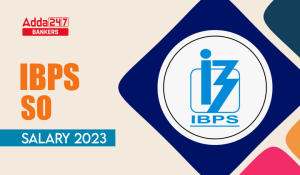1. Which of the following are the main objectives of the Industrial Employment Act, 1946?
(a) To have uniform standing orders in respect to workers, factories and working relationships
(b) To promote industrial peace and harmony by promoting fair indutrial practices.
(c) both ‘a’ and ‘b’
(d) either ‘a’ or ‘b’
2. Which of the following matters are covered in the schedule of standing orders under Section 2g and 3(2)?
(a) Classification of workers
(b) Shift working
(c) Termination , suspension, dismissal etc
(d) All of the above
3. Apart from the employer himself, who else is responsible for the payment to the persons employed by him of wages required to be paid under the Act?
(a) Any person named as manager in a factory
(b) Any one who controls and supervise in an Industrial establishment
(c) Any one nominated by the Railway Administration
(d) Any one of the above
4. Industrial Disputes Act, 1947 settles the dispute between
(a) employer v/s employer
(b) employer vs workmen
(c) workmen v/s workmen
(d) All of the above
5. Which of the following authorities come under the Industrial Disputes Act, 1947?
(a) Workds committee and conciliation officer
(b) Courts of inquiry and Labour Courts
(c) Tribunal and National Tribunals
(d) All of the above
6. Which of the following are the powers of conciliation officer?
(a) Enter and inspect
(b) Summon any person as witness or compel the production of document and rule.
(c) Grant/refuse approval/permission to petition filed by employer on disciplinary matters during pendency of conciliation before him
(d) All of the above
7. “Low costs of labour turnover, low skill levels and case of direct control of labour.” To which of the following kind of market, this statement signifies?
(a) Structured occupational labour market
(b) Industrial internal labour market
(c) Salaried internal labour market
(d) Open external labour market
8. Which of the following act is responsible for ensuring the safety, health and welfare of the employees?
(a) Factories Act, 1948
(b) Payment of Wages Act, 1936
(c) Equal Remuneration Act, 1976
(d) Industrial Disputes Act, 1947
9. Which of the following is not connected with employee safety and health?
(a) The Factories Act, 1948
(b) The Payment of Bonus Act, 1965
(c) The Mines Act, 1952
(d) The Safety , Health and Welfare Act, 1986
10. The centre of Indian Trade Union was organised in
(a) 1970
(b) 1980
(c) 1948
(d) 1990
Answers:
1:c
2.d
3.d
4.d
5.d
6.d
7.d
8.a
9.b
10.a
1:c
2.d
3.d
4.d
5.d
6.d
7.d
8.a
9.b
10.a


 IBPS SO Salary 2024, In Hand Salary, Job...
IBPS SO Salary 2024, In Hand Salary, Job...
 Documents Required for IBPS PO Interview
Documents Required for IBPS PO Interview
 All India Mock for IBPS SO Prelims 2023 ...
All India Mock for IBPS SO Prelims 2023 ...



